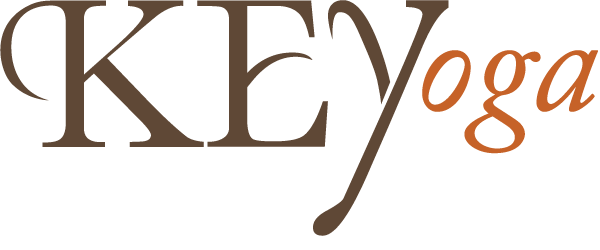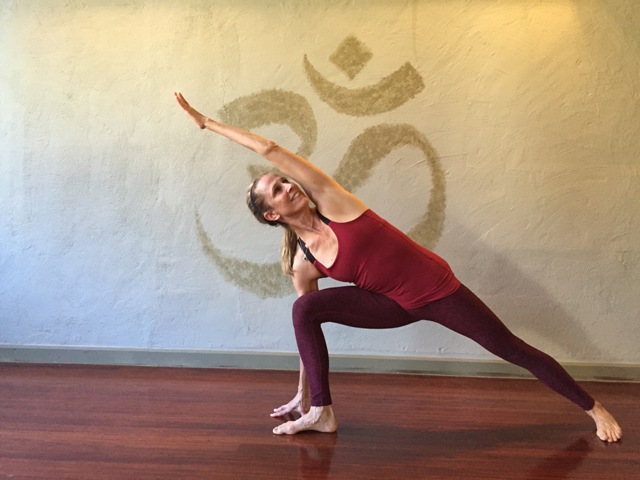The Bhagavad Gita gives us 2 very literal definitions of yoga. The first one is that yoga is skill in action. BG 2.50. And the other is that yoga is equanimity of mind. BG 2.48.
One of the best ways to learn more about your yoga poses is by either practicing in front of a mirror, or having someone take a picture of you in a pose. This is often very humbling. We are often not as advanced as we think we are! But it is a great way to learn. Awareness is always the first step in growth. Remember that yoga is equanimity of mind.
Then compare your pose to an example of a well done posture. Be wary of some of the poses you find online on Facebook or Instagram. While you may find some very correctly executed postures, there are many more not so well executed. I recommend looking in Light on Yoga, or online at www.yogajournal.com. I often refer to the pictures in Yoga Resource by Darren Rhodes. Unfortunately it is out of print, so it is very expensive to order.
Since Side Angle Pose is a building block towards Bird of Paradise, let’s look at that. Take a picture of yourself in Side Angle pose from the front and from your head side. Now compare it to this as an example:
How does your pose measure up? Can you look at yourself critically but lovingly? Don’t beat yourself up by how bad your pose might look to you. Instead, look at what you are doing that is good and work to build on that. Look at where you need to move to. Knowing where you are helps you move towards where you want to be.
Sometimes students look at a pose and see certain things that they attach importance to, such as the hand on the floor in Side Angle Pose. While the hand on the floor is a goal, you have to first look at the skill of that action.
The full version of Side Angle Pose is with the front knee bent 90 degrees, the knee over the ankle and the front thigh is parallel to the floor. The upper side of the body should be a straight line from the outer edge of the back foot up to the tips of the fingers of the top hand.
But, you also have to look at the pose from the front. The body should be very 2 dimensional from the front. That means that the outer buttock of the front leg should be in line with the outer knee. Not winging out.
In this view, you can see that my buttocks are winging out and my chest is facing slightly downward rather than shining out to the side. This usually happens when a student prioritizes getting the hand to the floor over the form of the pose.
In this view, I have the outer buttock of my front leg in line with the outer knee and my chest is facing sideways. This is skillful action
If I didn’t have the flexibility to get my hand to the floor, I would be better off placing my hand on a block and turning my chest open. This is where the second definition of yoga comes in: Yoga is equanimity of mind. (BG 2.48) Can I prioritize skillful action? Can I find equanimity in backing off from grasping for the full pose until I develop the skill to enter the pose gracefully?




